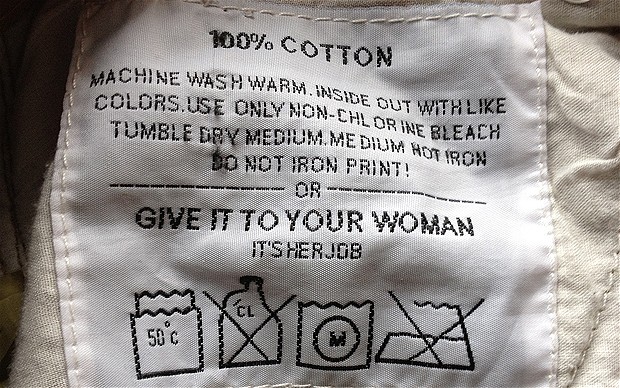Social media is bad for us, says former Facebook exec, Chamath Palihapitiya. Well, he didn’t say that exactly, what he said was:
“I think we have created tools that are ripping apart the social fabric of how society works.”
Okay, that’s not much better really, is it?
Palihapitiya’s talk at the Stanford Graduate School of Business covered issues such as our addiction to social media driven dopamine hits and our tendency to believe (and sometimes act on) false information spread through social networks.
While he believes that Facebook does good in the world, he doesn’t use it much himself and his children “aren’t allowed to use that shit”.
So has social media gone from connecting people to controlling them?
Social media and the pressure to always be online
The #StatusOfMind report, published by the Royal Society for Public Health, looked at how social media was affecting 14-24 year-olds. Respondents reported that youngsters loved social media for its positive impact on their lives – such as helping them to express their identity, become part of a community and to find emotional support (YouTube was highlighted as a great platform for raising awareness of other people’s issues).
However, respondents viewed Instagram, Snapchat, Facebook and Twitter as networks that increased people’s anxiety and depression. Young people who spend more than two hours on these platforms a day suffer the most.
“Seeing friends constantly on holiday or enjoying nights out can make young people feel like they are missing out while others enjoy life. These feelings can promote a ‘compare and despair’ attitude in young people. Individuals may view heavily photo-shopped, edited or staged photographs and videos and compare them to their seemingly mundane lives.”
Another study, published in The Drum, found that “more than half of Snapchat users would feel disconnected from friends if not for Snapchat.”
Dr Bernadka Dubicka, the chair of the child and adolescent faculty at the Royal College of Psychiatrists, told The Guardian that social media: “can be damaging and even destructive” and that: “There’s a pressure for young people to be involved 24/7 and keep up with their peer group or they will be left out and socially excluded.”
Dopamine dealers
Some social media companies and app creators use gamification to trigger addictive behaviours. Former Google engineer, Tristan Harris, talked about a Snapchat feature called streaks. Like winning streaks, this feature shows how many days in a row two people have sent messages to each other. Harris says:
“The problem is that kids feel that they don’t want to lose their streak. So much so that when kids go on vacation they are so stressed about their streak that they actually give their password to, like, five other kids to keep their streaks going on their behalf.”
App creators know the power of dopamine. The brain produces it as a motivator.” Do this and get rewarded with this dopamine hit that’ll make you feel good for a few minutes.”
Here’s how it works:
The power of variable reinforcement
In Irresistible: Why we can’t stop checking, scrolling, clicking and watching, Adam Alter tells of a 1971 experiment that psychologist Michael Zeiler carried out on pigeons. Trying to discover the best way to deliver rewards, Zeiler set up a button that the pigeons in the lab had to peck to receive pellets. The study found that their brains rewarded them the most, not when the rewards were a constant one peck/one pellet, but when the peck only resulted in a pellet 50-70% of the time.
“His pigeons were drawn to the mystery of mixed feedback just as humans are attracted to the uncertainty of gambling.”
Facebook used this concept when it introduced the ‘Like’ button, a feature which most social media platforms and apps have adopted.
Ramsay Brown, co-founder of Dopamine Labs, spoke to Canada’s CBC news about how app and social media companies use dopamine to hook people on their services.
Variable reinforcement is one of the most popular methods of keeping people coming back for more; this involves a trigger, an action and a reward.
He uses Facebook as an example. It pings your phone with an alert (the trigger), you check the message (the action), and if you post a reply or share a message of your own you may get a like or a share (the unpredictable reward).
Brown says, “Just by controlling when and how you give people that little burst of dopamine, you can get them to go from using [the app] a couple of times a week to using it dozens of times a week.”
Is the solution really more Facebook?
Facebook recently addressed the issue (Is spending time on social media bad for us?). It theorised that the issue was passive consumption, merely scrolling through your timeline and liking a few posts as opposed to actively engaging – replying and posting content of your own.
Of course, it doesn’t hurt that this theory tells us that we need to spend more time on Facebook. That we should give it more information about ourselves to feed its advertisers, who are suffering because we just aren’t sharing personal details much these days.
Is it time for a social media detox?
Chamath Palihapitiya says that we need a “hard break” from social media as a society, but what about personally? Do you ever take a break from social media?
Sometimes when I’m not working I forget to charge my mobile. I can go for weeks without checking social media and come back to it not having missed much of substance. (Look, I may be a millennial, but I’m a pretty ancient one.)
The question is, what will those of us addicted to social media, apps and our phones be like in five or ten years? Will we be able to put social media aside and focus on creating deeper connections? Will we be able to engage in civil debate? Or will we be hyper-reactive and chasing the next dopamine high?
What about those of us whose livelihood hinges – in part – on being connected? How do you keep up with social media without feeling the need to check every notification that comes your way?
Like anything that triggers dopamine production, we can become addicted to social media and the myriad apps on our phones.
To remove them entirely is to miss all the benefits of connection and friendships. But we do need to understand the potential damaging effects that overuse could have.
As with everything in life, moderation is the key. We need to manage our access to these apps if we want to continue using social media to communicate, rather than allow it to control us.
–
Featured image by Jacob Ufkes on Unsplash






